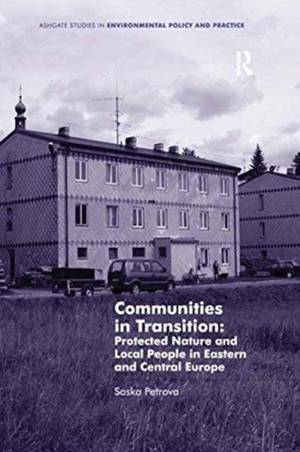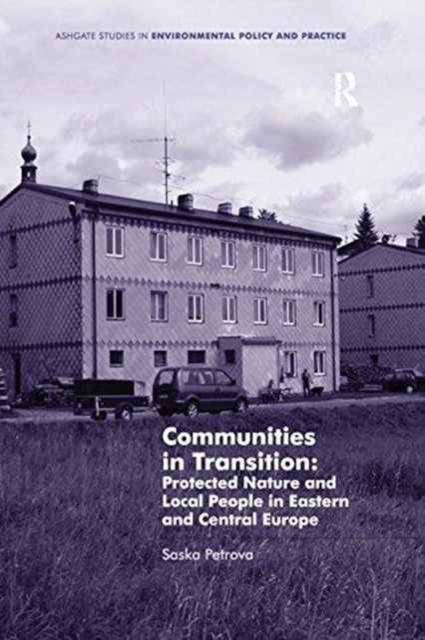
- Afhalen na 1 uur in een winkel met voorraad
- Gratis thuislevering in België vanaf € 30
- Ruim aanbod met 7 miljoen producten
- Afhalen na 1 uur in een winkel met voorraad
- Gratis thuislevering in België vanaf € 30
- Ruim aanbod met 7 miljoen producten
Zoeken
Communities in Transition: Protected Nature and Local People in Eastern and Central Europe
Saska Petrova
€ 102,45
+ 204 punten
Uitvoering
Omschrijving
The role of local people in contemporary nature conservation practices is often poorly understood or neglected. This book, therefore, examines questions of local participation at the nature-society nexus within national parks in the transitional context of Central and Eastern Europe (CEE). The post-1990 reconfiguration of conservation paradigms in this part of the world has re-opened various age-old debates about the protection and administration of natural heritage. Further complicating the situation has been the introduction of market-based principles, which has embedded the entire process in broader dynamics of neoliberalization and the capitalist space economy. Providing an integrated perspective on why, how and for whom nature conservation practices have been implemented in CEE, this book sheds further light upon the mechanisms through which such practices both redefine and are affected by the everyday life of people living in national parks. Offering a critical global review of the environmental motivations and power interests behind the creation of national parks, as well as a typology of the relations between local people and the dynamics of nature protection in them, this work challenges the dichotomy between developed and developing countries that pervades much of the academic literature on nature protection. Author Saska Petrova highlights the lessons that can be learnt by applying the experiences of local community participation in environmental management in CEE to other locations undergoing major systemic change in their environmental governance practices, such as the 'low carbon transition' that is currently unfolding at a global scale.
Specificaties
Betrokkenen
- Auteur(s):
- Uitgeverij:
Inhoud
- Aantal bladzijden:
- 206
- Taal:
- Engels
- Reeks:
Eigenschappen
- Productcode (EAN):
- 9781138251304
- Verschijningsdatum:
- 2/09/2016
- Uitvoering:
- Paperback
- Formaat:
- Trade paperback (VS)
- Afmetingen:
- 156 mm x 234 mm
- Gewicht:
- 299 g

Alleen bij Standaard Boekhandel
+ 204 punten op je klantenkaart van Standaard Boekhandel
Beoordelingen
We publiceren alleen reviews die voldoen aan de voorwaarden voor reviews. Bekijk onze voorwaarden voor reviews.











